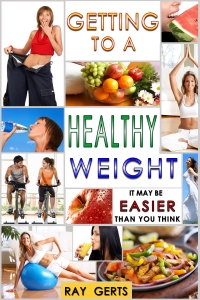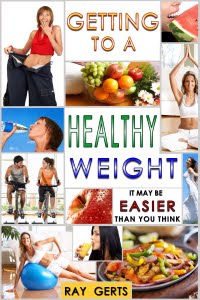Can Breakfast Help You Lose Weight?
A Great Post and a question several of my readers have asked.
To eat breakfast or not to eat breakfast? That’s the big question if you’re trying to slim down.
For years, diet and nutrition experts have said a morning meal is a wise idea. But after a University of Alabama at Birmingham (UAB) study showed that overweight breakfast eaters weren’t any more likely to slim down than those who skipped it, many were left wondering if they should bother, after all.
“Yes, you should eat breakfast,” says Suzy Weems, PhD, a registered dietitian and professor of family and consumer sciences at Baylor University in Waco, TX. But that doesn’t mean you should dig into a stack of pancakes and a plate of bacon. The UAB study didn’t look at what people were eating. It didn’t look at how many calories they were getting, either.
“You can’t have Twinkies and coffee and expect to slim down, or even maintain weight loss,” Weems says. “The food you choose matters.”
That may be why other studies show that breakfast does help with weight loss. In fact, more than 75% of people who lose more than 30 pounds and keep it off eat the morning meal every single day.
What Does Breakfast Do for You?
Keeps your appetite in check. If you wait hours after waking up to eat, your blood sugar levels can get low. Certain hunger-fueling hormones can be affected, too.
The result? “You may be starving by lunchtime -- or even earlier,” Weems says.
And when you’re really hungry, “you’re less likely to choose healthier options,” says Leigh Tracy, a registered dietitian at Mercy Medical Center in Baltimore. You’ll probably eat more calories and fat than you intended to, which makes it even harder to shed extra pounds.
Gives you energy. “Imagine driving a car on fumes,” Tracy says. “You’re not going to get far before you need to refuel.”
Your body’s the same way: Skip breakfast and you don’t get the nutrients and calories you need to get through your day. When your energy levels are high, you’re also more likely to make waist-friendly choices, like exercising and cooking healthy meals at home instead of opting for fast food.
Boosts your health. “Breakfast tends to go hand in hand with a healthy lifestyle,” Weems says. It may even lower your odds of getting conditions like heart disease and diabetes.
How to Eat for Weight Loss
Opt for protein and fiber. Foods that are rich in protein (like eggs) and those that are high in fiber (like oatmeal and whole-grain cereal) are great choices for dropping pounds and staying at that lower weight. “They satisfy you and keep you feeling fuller longer," Tracy says.
Don’t forget produce. If you’re like most Americans, you get enough protein and fat -- but not nearly enough vitamin- and fiber-rich fruits and vegetables.
“Think of breakfast as an opportunity to add them in,” Tracy says. Even an apple and a slice of string cheese, or a hard-boiled egg with carrot and celery slices, can get you through until your midday snack or lunch.
Count calories. Some breakfast foods are loaded with hidden calories. Some people add five or more fruits to a smoothie, plus protein powder, not realizing how fast the calories add up, Tracy says.
Serving sizes can be tricky, too, so use measuring cups. “One cup of cereal may be less than you think,” Weems says.
The number of calories you should eat depends on your height, weight, weight loss goals, and activity level.
Even so, “you should eat at least 250 to 300 calories at breakfast,” Weems says. If you’re an active man, that number may be as high as 500 to 600 calories. Not sure? Ask your doctor or a dietitian.
Choose food that works with your lifestyle. Not a “breakfast person”? “When my patients don’t feel up to eating early, I suggest they bring an easy grab-and-go breakfast to work,” Tracy says.
Try these healthy, on-the-go ideas:
- A banana wrapped in a whole wheat tortilla with a couple tablespoons of peanut butter
- A smoothie made with berries, low-fat yogurt, ice, and water
- Instant oatmeal
If you’re usually rushed in the morning, “plan your breakfast ahead of time,” Weems says. For example, make an egg casserole with vegetables at the start of the week, store it in the fridge, and make that your breakfast for several mornings in a row.
WebMD Feature
Look for my podcast by searching “How Bad Do You Want To Lose Weight” on the podcast app that you use. You’ll see a piece of my book cover.
If you really want to lose your body fat look for my e-books at the websites listed below. You'll get information on Healthy eating, exercise, and diet. Instead of spending hours on the internet reading dozens of posts, you can save time by picking up one of my e-books.
There are two e-books. “How Bad Do You Want To Lose Weight?” is available at all the online bookstores selling for $3.99. Go to any of the websites below and search the title to find my e-book. This book gives you all you need to lose weight without spending money on gym memberships, diet plans, or meal plans. Look for my book. at Amazon.com, bn.com, iBooks, Kobo.com, Scribd.com, or Gardner Books in the U.K.
My new e-book is available on Smashwords.com and other online bookstores. Just type “getting to a Healthy Weight” in the search box at the top of the home page.







